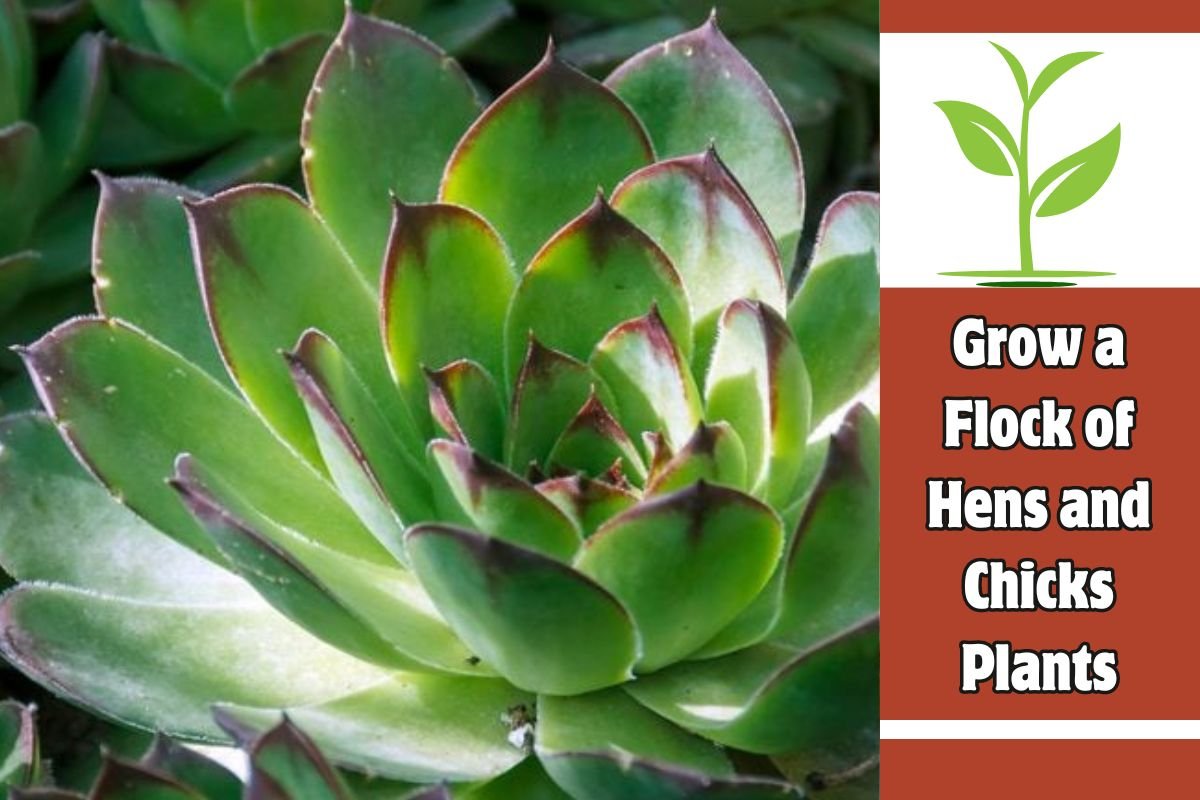Grow a Flock of Hens and Chicks Plants: It’s the ideal succulent for a novice gardener, but why is it called that? Here are several things to be aware of with the hens and chicks plant.
Grow a Flock of Hens and Chicks Plants
All About Hens and Chicks Plant
You may chuckle at the unusual name “Hens and Chicks,” yet it makes sense. The rosette-shaped centre of the plant and the smaller growths that sprouted from it gave rise to the plant’s name. (More or less like a hen with her little chicks?)
Growing hens and chicks is a great option for novice succulent growers. Certain types can withstand temperatures as low as -3 degrees Celsius and thrive in frigid and windy environments. It works well in container gardens or even fairy gardens because it can grow in confined areas where few other plants would dare to take root.
ALSO SEE
10 Popular Edible Mushrooms (And How To Cook With Them)
Advertisement
How to Grow Hens and Chicks Succulents
Light
Although it can withstand some shade, this succulent likes bright light and sunny circumstances. A plant that grows hens and chicks can extend up to 20 inches in width when the right circumstances are met. You’ll receive a lot of value for your money!
Water
Chickens and hens don’t require a lot of water. It’s actually probably better if you didn’t water it at all than if you did. The soil for this plant must drain properly. In moist, sloppy soil, it will not thrive.
Growing Zones
Zones 4 to 8 are where the majority of hen and chick plant varieties grow outdoors. While most won’t be able to withstand the heat and humidity of Zones 9 to 11, some will flourish in Zone 3. But you can also grow them inside in any zone as a houseplant. Put them in a well lit spot and in a container that allows them to spread out.
Problems
When it comes to hens and chicks, there isn’t much to be cautious of. Mealybugs are their sole vulnerability, so it’s important to monitor the plants and take swift action if one appears. If not, mealybugs may infect additional plants in your garden.
Hens and Chicks FAQs
Q: I can’t seem to get hens-and-chicks to grow. I have tried for several years and still fail. What can I do to keep them alive?
Melinda Myers, a garden expert, states that full light and well-drained soils are ideal for hens and chicks to grow. Some gardeners find it difficult to maintain the life of these and other succulents in their hard clay soils. Consider cultivating them in a container with potting mix that drains well. To protect the roots from your chilly temperatures, move potted hens and chicks inside an unheated garage or bury the pot in the ground during the winter.
Q: Help! Squirrels eat all of my hens and chicks. How can I stop them?
Melinda Meyers writes, “Many squirrels are accustomed to human smells and sounds, so scaring them away from your plants is difficult, but certain tactics and repellents may help. Surround plants with whirligigs, clanging pans, or other distractions. Use scent or taste repellents to deter squirrels. Cayenne pepper helps some gardeners. Success increases with multiple methods. If none of these methods work, cover the plants with netting or a wire-mesh cage the squirrels can’t gnaw. You can remove the cage once they find fresh food, but keep it close in case they return. Protect plants from squirrels before they eat them.”
